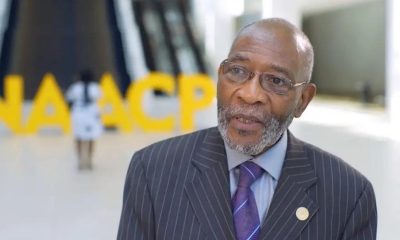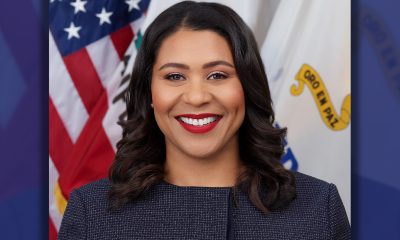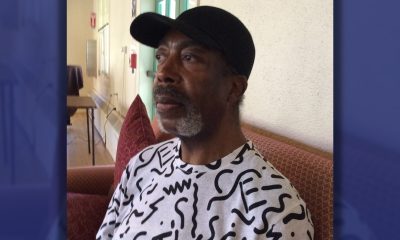Activism
OPINION: A Great Way to ‘Listen to Black Women’ Is to Elect Them
Recent reports also show that Black candidates are faring especially well in Senate fundraising in the 2022 cycle. While summary numbers might mask persistent hurdles, these data indicate that Black candidates might be better financially positioned for electoral success in the next election.
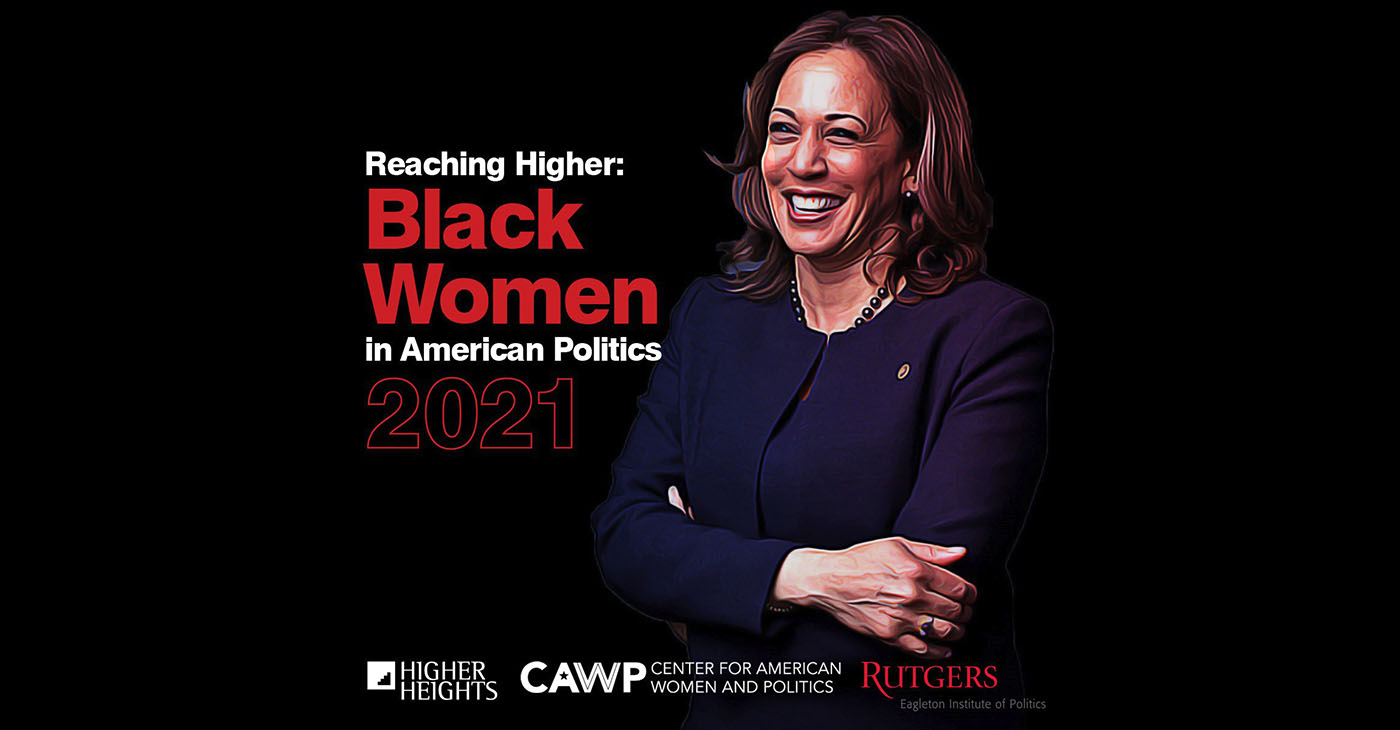
By Kelly Dittmar and Glynda C. Carr
Listen to Black women, they say. Support Black women, they tweet. The praise of Black women in recent years is evident in words, but public statements and hashtags must translate into action. And that action should include efforts to elect Black women.
Seven years ago, our organizations joined forces to spotlight the status of Black women in American politics. Since our first report, we have seen — and hopefully contributed to — great progress.
In that time, 17 new Black women were elected to Congress, including the second Black woman to ever serve in the U.S. Senate and the first Black women to represent their states from Connecticut, Delaware, Massachusetts, Missouri, Minnesota, New Jersey, Utah, and Washington. The number of Black women state legislators has risen by nearly 50%.
Black women have made tremendous strides in representation as big-city mayors, with 12 Black women taking office for the first time as mayors in the top 100 most populous cities from mid-2014 to present.
Today, Black women are mayors of eight major cities, including Atlanta, Boston, Charlotte, Chicago, New Orleans, San Francisco, Washington, D.C., and St. Louis. Just two weeks ago, Elaine O’Neal was elected as mayor of Durham, N.C.; she will take office in early December. And, of course, with Kamala Harris’ 2020 election as vice president, a Black woman now serves in the second-highest position in U.S government.
Progress for Black women in elective office is not measured in numbers alone. The effects of Black women’s political representation are evident in both disrupting white- and male-dominated institutions and making policy change.
Research at the state legislative and congressional levels has shown how Black women’s identities shape policy contributions and behaviors in ways that give voice to underrepresented groups and perspectives.
Five years ago, Representatives Bonnie Watson-Coleman (D-NJ), Robin Kelly (D-IL), and Yvette Clark (D-NY) created the Congressional Caucus on Black Women and Girls to promote public policy that “eliminates significant barriers and disparities experienced by Black women.”
Just this year, representatives Lauren Underwood (D-IL) and Alma Adams (D-AL), with Senator Cory Booker (D-NJ), have pushed for “momnibus” legislation to address the crisis in Black maternal health. And in late summer, Representative Cori Bush (D-MO) slept on the stairs of the U.S. Capitol as part of a relentless push to extend the eviction moratorium — which disproportionately affects Black and Brown Americans.
Black women have also been at the forefront of changing the actual institutions in which they serve. Bush’s efforts on the eviction moratorium included calls for institutional change, such as ending the filibuster, in hopes that it would clear the way for a policy agenda that would better serve Black communities.
And in a July 2020 floor speech, Representative Ayanna Pressley (D-MA) made clear that patriarchy is “very much at home in the halls of this powerful institution” and called on her colleagues to build the world that all girls and women deserve, beginning with the institution of Congress.
Black women’s gains in representation should not mask the persistent hurdles they must navigate to find electoral success.
Research demonstrates that Black women are among those women more likely to be discouraged from running for office, confront disparities in campaign fundraising, navigate distinct politics of appearance, and are evaluated by voters and media alike in ways that both rely on and perpetuate damaging stereotypical biases.
Recent reporting has also revealed more than ever before the abuse that Black women face as both candidates and officeholders, abuse that is often rooted in the confluence of racism and misogyny and leads not only to personal harm but also to decisions to abandon political careers.
And while many Black women have navigated these hurdles en route to electoral success, Black women’s underrepresentation in elective office persists, especially in the Republican Party and offices elected statewide.
Today, just three Black Republican women serve as state legislators and no Black Republican women serve in statewide or congressional offices. Former Representative Mia Love (R-UT), the only Black Republican woman ever elected to Congress, was defeated in election 2018.
Her decision to stand up against then President Donald Trump in defense of Haitians specifically, and immigrants more broadly, damaged her chances for re-election and illustrated a distinct challenge she faced in giving voice to her own identity and experience while also aligning with the politics of her party. This challenge persists in today’s GOP, creating unique conditions for Black Republican women who decide to run.
Just two Black women have ever served in the U.S. Senate, and there are no Black women senators serving today amidst key debates over the economy, infrastructure, the environment, voting rights, criminal justice, and immigration.
Black women also hold just six of 310 statewide elective executive offices in the U.S., roles that are key to shaping state policy agendas and outcomes. Just 17 Black women have ever held statewide elected executive offices in 14 states, and no Black woman has ever served as governor.
The 2022 election offers some opportunities to address these gaps. With more than a year before Election Day, the number of Black women who have announced major-party candidacies for U.S. Senate has already exceeded the previous record of 13.
Recent reports also show that Black candidates are faring especially well in Senate fundraising in the 2022 cycle. While summary numbers might mask persistent hurdles, these data indicate that Black candidates might be better financially positioned for electoral success in the next election.
At least five Black women have announced major-party gubernatorial candidacies in this cycle, one short of the previous high. And there remains time for more Black women to step forward, including former Georgia House Minority Leader and organizer Stacey Abrams (D-GA), who is the only Black woman who has ever won a major-party gubernatorial nomination.
Candidacies neither ensure nomination nor election, but it’s a start. These Black women — and others who are launching political campaigns — are doing what they can to create a more representative democracy.
But their success relies on others, including those who issued public directives to support Black women over the past 18 months. You can support Black women on the campaign trail with your time and your money, and you can support Black women at the ballot box with your vote.
You can listen to Black women by ensuring they have seats at policymaking tables where their voices, expertise, and perspectives can inform substantive change. It’s time to translate words into actions.
Kelly Dittmar is an associate professor of Political Science at Rutgers-Camden and Director of Research and Scholar at the Center for American Women and Politics, a unit of the Eagleton Institute of Politics at Rutgers University. Glynda C. Carr is CEO and co-founder of Higher Heights for America.
Activism
S.F. Black Leaders Rally to Protest, Discuss ‘Epidemic’ of Racial Slurs Against Black Students in SF Public School System
Parents at the meeting spoke of their children as no longer feeling safe in school because of bullying and discrimination. Parents also said that reported incidents such as racial slurs and intimidation are not dealt with to their satisfaction and feel ignored.

By Carla Thomas
San Francisco’s Third Baptist Church hosted a rally and meeting Sunday to discuss hatred toward African American students of the San Francisco Unified School District (SFUSD).
Rev. Amos C. Brown, president of the San Francisco NAACP and pastor of Third Baptist Church, along with leadership from local civil rights groups, the city’s faith-based community and Black community leadership convened at the church.
“There has been an epidemic of racial slurs and mistreatment of Black children in our public schools in the city,” said Brown. “This will not be tolerated.”
According to civil rights advocate Mattie Scott, students from elementary to high school have reported an extraordinary amount of racial slurs directed at them.
“There is a surge of overt racism in the schools, and our children should not be subjected to this,” said Scott. “Students are in school to learn, develop, and grow, not be hated on,” said Scott. “The parents of the children feel they have not received the support necessary to protect their children.”
Attendees were briefed last Friday in a meeting with SFUSD Superintendent Dr. Matt Wayne.
SFUSD states that their policies protect children and they are not at liberty to publicly discuss the issues to protect the children’s privacy.
Parents at the meeting spoke of their children as no longer feeling safe in school because of bullying and discrimination. Parents also said that reported incidents such as racial slurs and intimidation are not dealt with to their satisfaction and feel ignored.
Some parents said they have removed their students from school while other parents and community leaders called on the removal of the SFUSD superintendent, the firing of certain school principals and the need for more supportive school board members.
Community advocates discussed boycotting the schools and creating Freedom Schools led by Black leaders and educators, reassuring parents that their child’s wellbeing and education are the highest priority and youth are not to be disrupted by racism or policies that don’t support them.
Virginia Marshall, chair of the San Francisco NAACP’s education committee, offered encouragement to the parents and students in attendance while also announcing an upcoming May 14 school board meeting to demand accountability over their mistreatment.
“I’m urging anyone that cares about our students to pack the May 14 school board meeting,” said Marshall.
This resource was supported in whole or in part by funding provided by the State of California, administered by the California State Library via California Black Media as part of the Stop the Hate Program. The program is supported by partnership with California Department of Social Services and the California Commission on Asian and Pacific Islander American Affairs as part of the Stop the Hate program. To report a hate incident or hate crime and get support, go to CA vs Hate.
Activism
Oakland Ambassadors Strengthen Ties and Aid Efforts in Ghana
Oakland natives and esteemed members of the African American Sports and Entertainment Group (AASEG), Jonathan P. Jones and Dr. Maritony Efua Jones, recently embarked on a significant journey to Ghana as guests of the World Martial Authority Ghana. This trip signifies a crucial opportunity to bolster partnerships, explore new avenues of collaboration, and contribute to impactful initiatives in Ghana.
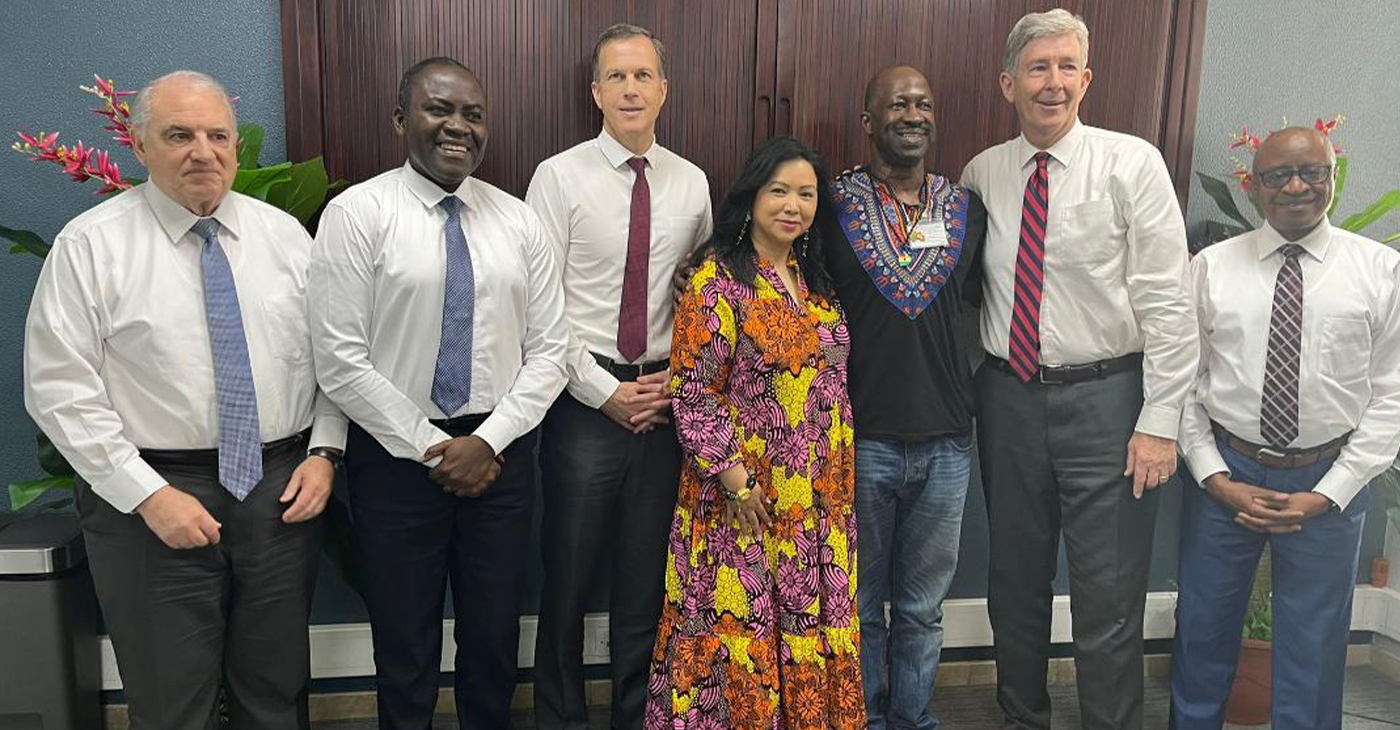
By Post Staff
Oakland natives and esteemed members of the African American Sports and Entertainment Group (AASEG), Jonathan P. Jones and Dr. Maritony Efua Jones, recently embarked on a significant journey to Ghana as guests of the World Martial Authority Ghana.
This trip signifies a crucial opportunity to bolster partnerships, explore new avenues of collaboration, and contribute to impactful initiatives in Ghana.
Upon their arrival at Katota Airport in Accra, Ghana, the Joneses were warmly received by His Royal Majesty Okatakyie Asafo Boakye III, the distinguished king of Sanzule Kingdom in the Eastern Nzema, and Etse Nyamedi of World Martial Authority, Ghana.
Nyamedi accompanied the Joneses to the city of Mepe, which had recently experienced flooding, to assess damages and engage with local leaders, elders, and youth regarding the city’s urgent needs after major floods last fall.
Key concerns and priorities identified by the community include comprehensive flood mitigation measures, agricultural support, housing initiatives, educational enhancements, improved healthcare access, and the development of communal recreational spaces.
The Joneses were also graciously invited to meet with leaders of The Church of Jesus Christ of Latter-day Saints at their headquarters in Accra. This meeting provided insights into ongoing humanitarian efforts in Ghana and explored avenues for collaboration to further assist Ghanaian communities.
The LDS leaders shared their prompt response to the recent flood, demonstrating their commitment to humanitarian aid by dispatching substantial supplies including medical provisions, sanitation items, blankets, and food to assist flood victims just four days after the disaster.
Additionally, Boakye extended a special invitation to the Joneses to his palace, where they were pleasantly surprised with a heartfelt recognition ceremony. Maritony Jones was honored as the Queen Mother of the Sanzule Kingdom in acknowledgment of her dedicated work, while Jonathan Jones was lauded and welcomed as the ambassador of the Sanzule Kingdom, symbolizing a meaningful homecoming to their ancestral land.
The visit not only strengthens ties between Oakland and Ghana but also underscores the collaborative spirit and commitment to meaningful progress and humanitarian endeavors shared by all involved parties.
Activism
Calif. Anti-Sex Trafficking Advocates Discuss Competing Bills, Strategies
Advocates from across California are challenging state officials and community leaders to support legislation that provides resources and services for survivors and victims of human trafficking, as well as assistance as they transition back into civil society. Some of those advocates are also calling for more effective state policy to curtail trafficking, a crime that has an outsized impact on Black children, particularly girls.

By Bo Tefu, California Black Media
Advocates from across California are challenging state officials and community leaders to support legislation that provides resources and services for survivors and victims of human trafficking, as well as assistance as they transition back into civil society.
Some of those advocates are also calling for more effective state policy to curtail trafficking, a crime that has an outsized impact on Black children, particularly girls.
According to the FBI, a report covering a two-year period found Black children accounted for 57% of all juvenile arrests for prostitution. In addition, 40% of sex trafficking victims were Black and 60% of those victims had been enrolled in the foster care system.
“It is time to hold the perpetrators who take advantage of our children accountable,” said the Rev. Shane Harris, a San Diego-based activist, former foster youth and founder of the Peoples Association of Justice Advocates, (PAJA), a national civil rights organization and policy think tank.
“It is time to send a thorough message that if you seek to buy a child for sex, you will pay the highest criminal penalties in this state,” added Harris who was speaking at a rally at the State Capitol earlier this month. Harris was speaking in support of Senate Bill 1414, authored by Sen. Shannon Grove (D-Bakersfield), which calls for people who buy sex from minors to be punished with a felony. The punishment includes a two-year prison sentence and a $25,000 fine.
Harris said the PAJA is the only civil rights organization in the state that supports SB 1414.
Harris urged other Black-led groups who favor anti-trafficking legislation more focused on criminal justice reforms (as opposed to stiffer penalties), to “join the movement.”
Many of those civil rights groups fear that SB 1414 could lead to the incarceration of more Black youth.
Those sentiments were echoed in a panel discussion organized by Black women advocates on April 26 to examine the cause and effects of human trafficking in California’s Black communities. The virtual event was hosted by the Forgotten Children, Inc, a faith-based nonprofit that advocates for survivors and victims of human trafficking through anti-trafficking campaigns and initiatives.
Panelists shared the psychological impact of sexual exploitation on youth and children in the long term.
Author and educator Dr. Stephany Powell shared statistics and information revealing that African American women and girls are the most trafficked nationwide.
Powell, who serves as the senior advisor on law enforcement and policy at the National Center on Sexual Exploitation said that national data indicates that sex trade survivors are disproportionately women of color. She stated that male survivors often go unnoticed because boys rarely report trafficked crimes.
Powell said that decriminalizing prostitution in California could increase human trafficking. She argued that Senate Bill 357, authored by Sen. Scott Wiener (D-San Francisco), which was signed into law in 2022 and legalized loitering for prostitution, caused a surge in street-level prostitution.
Panelist and psychologist Dr. Gloria Morrow shared opposing views on decriminalizing prostitution. She said that decriminalizing prostitution could help survivors gain access to state resources and support.
Despite opposing views, Powell and Morrow agree that the Black community needs resources and educational programs to address human trafficking.
-

 Community3 weeks ago
Community3 weeks agoFinancial Assistance Bill for Descendants of Enslaved Persons to Help Them Purchase, Own, or Maintain a Home
-

 Business3 weeks ago
Business3 weeks agoV.P. Kamala Harris: Americans With Criminal Records Will Soon Be Eligible for SBA Loans
-

 Activism3 weeks ago
Activism3 weeks agoOakland Post: Week of April 10 – 16, 2024
-

 Community3 weeks ago
Community3 weeks agoAG Bonta Says Oakland School Leaders Should Comply with State Laws to Avoid ‘Disparate Harm’ When Closing or Merging Schools
-

 Community2 weeks ago
Community2 weeks agoRichmond Nonprofit Helps Ex-Felons Get Back on Their Feet
-

 Community2 weeks ago
Community2 weeks agoOakland WNBA Player to be Inducted Into Hall of Fame
-

 Activism1 week ago
Activism1 week agoOakland Post: Week of April 24 – 30, 2024
-

 Community2 weeks ago
Community2 weeks agoRPAL to Rename Technology Center for Retired Police Captain Arthur Lee Johnson

